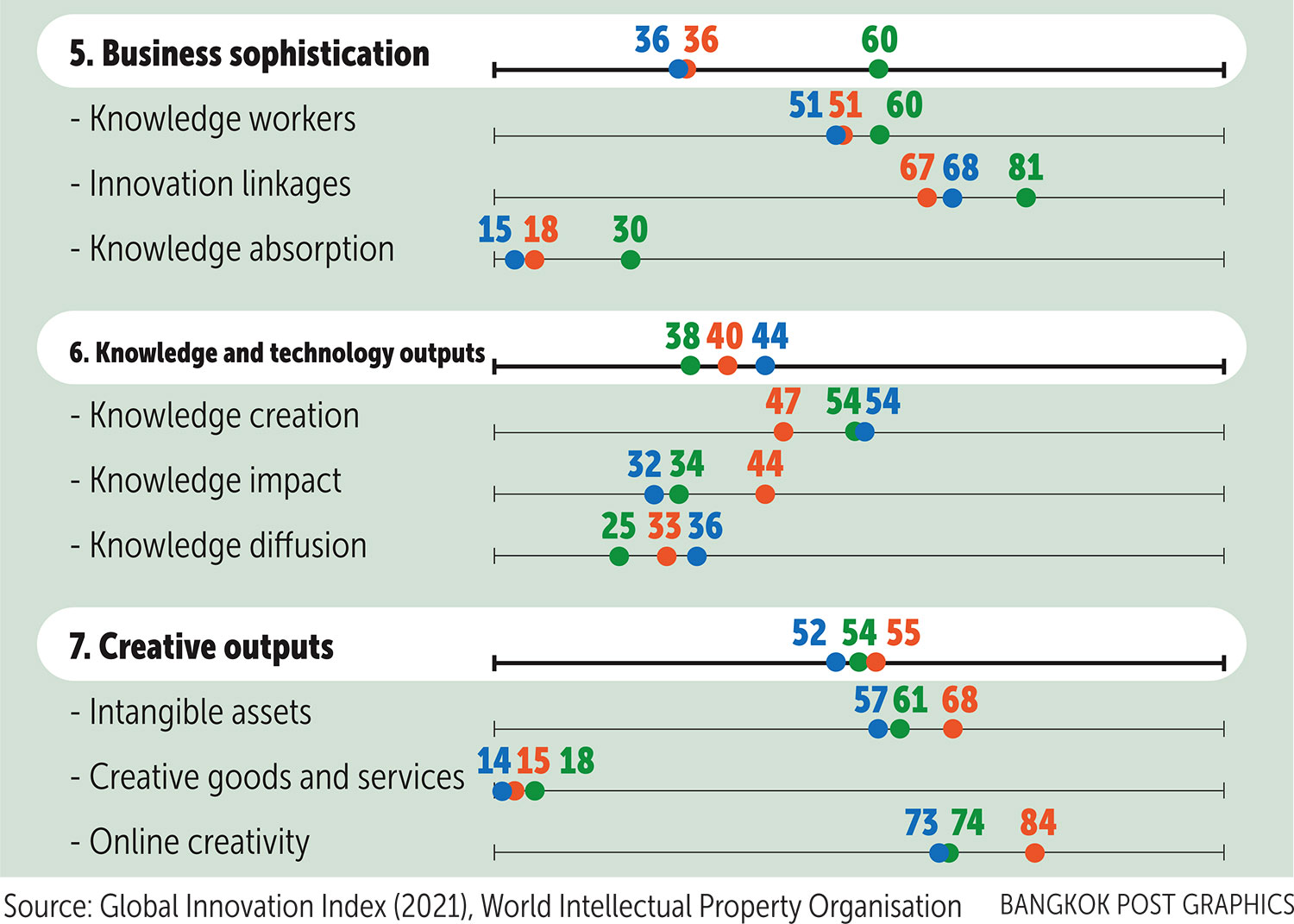Thailand seeks top 30 place in GII by 2030
Thailand has set an ambitious plan to jump into the top 30 in the Global Innovation Index (GII) by 2030 while the country climbed one place to 43rd in the 2021 index recently released by the World Intellectual Property Organisation.
“We have seen improvement in the innovation ranking but more work needs to be done in order to push our ranking up into the top 30 over the next 10 years,” Pun-arj Chairatana, executive director of the National Innovation Agency, said in a virtual brief following Monday’s release of GII 2021.
GII captures the innovation ecosystem performance of 132 economies and tracks the most recent global innovation trends.
Thailand was ranked third within Asean, trailing Singapore (8th) and Malaysia (36th). Among 34 upper middle-income economies, Thailand was ranked fifth.
GII is also divided into seven major categories for rankings.
Thailand is in 64th position for institution category, 63rd in human capital and research, 61st in infrastructure, 27th in market sophistication, 36th in business sophistication, 40th in knowledge and technology output and 55th in creative output.
Thailand’s gross expenditure on R&D (GERD) financed by business was ranked first in the world – two years in a row. This element is under the business sophistication category’s “knowledge workers” section.
“The most outstanding indicators for Thailand’s innovation capability lie in the groups of market sophistication and business sophistication,” said Mr Pun-arj.
GERD financed by business, which Thailand has held the first position for two consecutive years, reflects the private sector’s strong investment in innovation to boost business capacity.
Thailand was ranked 47th in innovation input, one place higher than last year, and 46th in innovation output, two places lower than last year.
Thailand also leapfrogged in the information and communication technology section, up from 79th last year to 60th this year.
The improvement in rankings reflects adjustments by the state and private sector in response to the pandemic by hinging on data-driven innovation, Mr Pun-arj said.
To achieve the top 30 in the GII ranking, the country needs to collect up-to-date data for such assessment, Mr Pun-arj said, adding 16 out of 81 indicators for assessment contain outdated data.
Second, the country needs to unlock regulatory burden and introduce new legislation meant to stimulate investment in startups and draw in innovation-based firms, including employee stock option programmes, tax incentives and innovation sandbox.
Third, more financial mechanisms, such as micro-financing for innovation-based small and medium-sized enterprises (SMEs), must be supported.
France, Japan and South Korea have banks with innovation-focused lending.
“Traditional lending is not an answer for innovation-based SMEs,” said Mr Pun-arj.
Switzerland remains in the pole position of the GII ranking, followed by Sweden, the United States and the United Kingdom.
South Korea rose five positions to fifth and the Netherlands dropped one place to sixth.
Finland and Singapore remain unchanged in seventh and eighth positions, respectively.
Denmark fell three places to ninth and Germany fell one place to 10th.
Source: https://www.bangkokpost.com/business/2185627/thailand-seeks-top-30-place-in-gii-by-2030


 Thailand
Thailand




